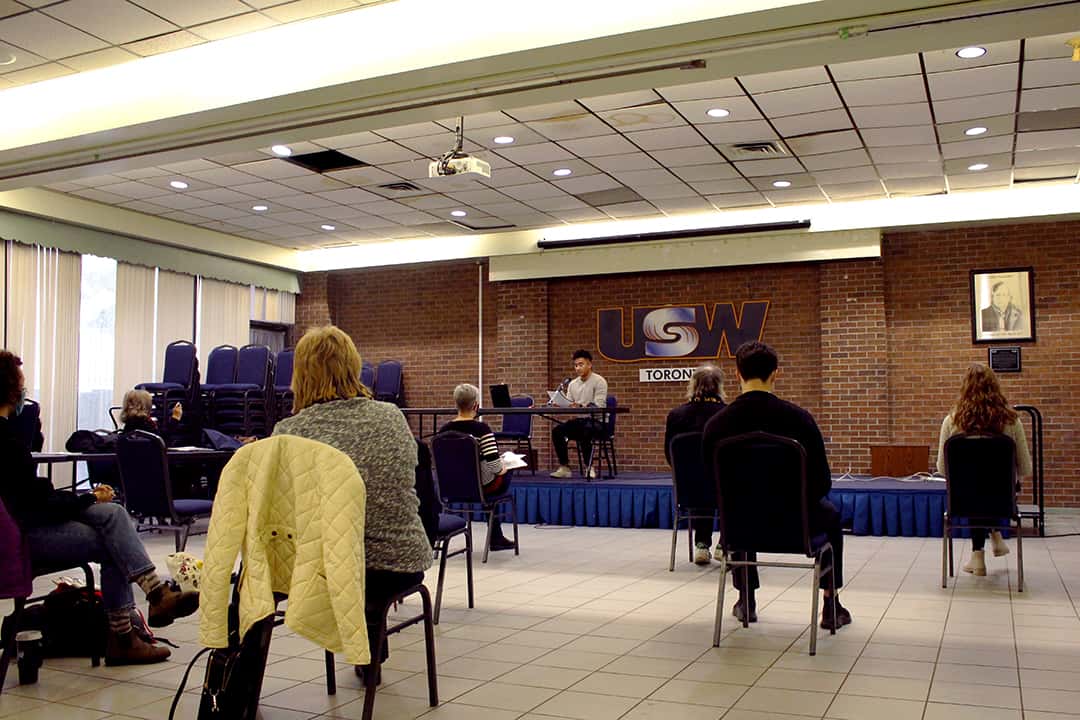For many casual workers, paid sick leave has been “a longstanding issue, even before the pandemic,” according to Colleen Burke, the president of United Steelworkers Local 1998 (USW 1998). USW 1998 represents casual workers: workers on short-term, part-time, or seasonal contracts. Now, the union’s fight for sick pay and better working conditions continues as the union sits down with the university at the bargaining table to renew their collective agreement for its casual workers.
When asked about the union’s demands, a U of T spokesperson explained that the university is engaging in the bargaining process and is working toward a renewed collective agreement.
“The University values and respects the work of the employees in the USW Local 1998 Casual bargaining unit. Over the past two decades, we have successfully negotiated numerous renewal collective agreements with USW Local 1998, and we look forward to constructive discussions with the Union in the current round of bargaining,” the spokesperson wrote.
Bargaining process
USW 1998’s Casual Unit represents 3,500 casual workers employed across U of T. Casual workers, or non-staff appointed employees, are those employed on “short term, part-time and intermittent contracts.” These positions include research assistants, IT professionals, student life officers, weight room attendants, and standard patients, who are professionals who portray medical scenarios for medical officers in training.
USW 1998 is responsible for representing workers’ interests and negotiating with their employer to create a collective agreement that determines employment policies, pay, working conditions, and more. The last such agreement expired in June 2020, and thus a new one is in the process of being negotiated.
When asked in an email interview with The Varsity about difficulties that the union faces in the bargaining process, Burke shared that the process was delayed by the pandemic. Bargaining dates were set in the spring of 2021 but were pushed to a later date due to scheduling issues. She added that Bill 124 — which limits public sector pay rise to one per cent per year — poses a “huge obstacle to getting monetary improvements.”
There was one round of in-person bargaining last week, and another will commence on November 8. The union is represented by the USW 1998 president, the Casual Unit’s president, and unit members. The university’s negotiating team comprises representatives from Labour Relations and Human Resources, Student Life, and the Temerty Faculty of Medicine.
Heightened difficulties during the pandemic
Unlike staff-appointed workers, casual workers do not have paid sick leave. At a news conference, standard patient Scott Eldridge, a USW 1998 Casual Unit member and an employee of the university for 19 years, commented on the difficulties of not having paid sick days. “Here we were helping out everyone get vaccinated, knowing that if we got sick, we would not be getting paid,” they said.
Burke pointed out that paid sick leave is particularly important right now. “There is a lot of community support for this and shock that a big institution like U of T does not have paid sick days for all workers,” she wrote. Burke mentioned that the “growing call for paid sick leave all across the country” was an advantage for the union in their negotiations.
Last year, the Canadian Labour Congress urged governments at all levels to provide paid sick leave. Subsequently, 10 days of paid sick leave were granted to workers across the country. An open letter from health providers affiliated with U of T also urged the university to “immediately close the gap in paid sick leave by expanding this basic health protection to all employees, starting with USW 1998.”
Protection, pay, and precarity
Fair pay and a pathway to full employment are also key issues for USW 1998. As stated in the last Collective Agreement, Casual Unit workers have a minimum wage of $15 per hour, but there is no set pay range. In a video called “Precarity U,” USW 1998 members spoke of the difficulties they’ve had in addressing wage grievances due to a lack of details in the agreement, and about being paid less than staff-appointed employees for doing the same work.
The previous agreement also included a pathway to full employment. In response to union concerns, the university set out to review casual employees for conversion to staff status semi-annually. However, USW 1998 still raises complaints about the precariousness in its members’ work, describing them as facing a “revolving door of temporary work.”


